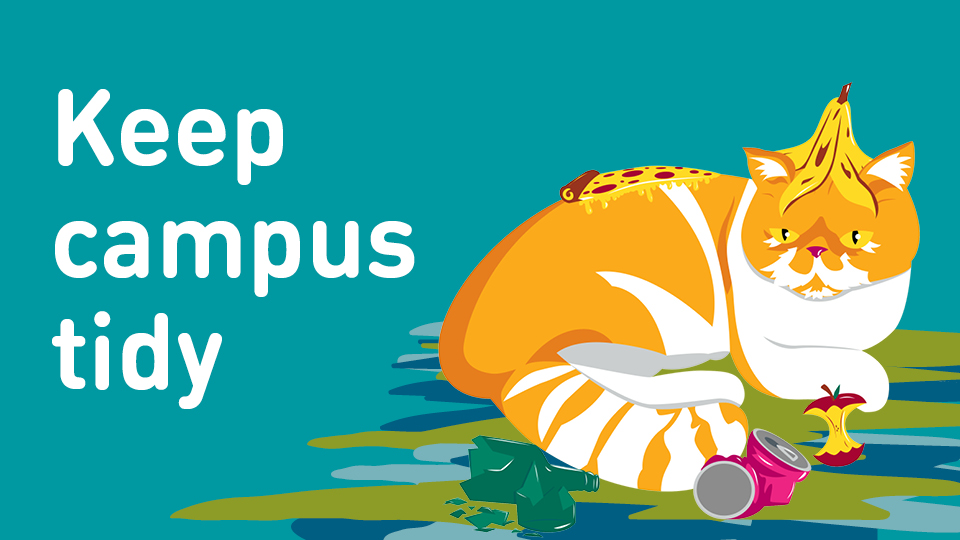However, sometimes our campus can be polluted by litter that has been carelessly dumped rather than being placed into a bin or taken back home. Whether it’s after a lunchtime meal, the end of a night out, or whilst on the go, we all know it happens and it’s something that needs to end.
Did you know that on average, the University can spend up to 150 hours litter picking every week? That works out as over 7,500 hours per year!
It’s not just the amount of resources that go into picking it up though – litter can cause damage to our rivers, seas and marine life and negatively affect air pollution too. It’s a significant contributor of not only the deaths of millions of animals, but also the rise of vermin.
It’s a significant issue that has recently been reported in the media too, as outdoor restrictions ease and more people descend to parks and other outdoor spaces to meet with friends.
Our campus is a home for animals such as badgers, foxes, squirrels, muntjacs, and over 40 types of birds. We even have a Bronze award for being a Hedgehog Friendly Campus.
We’re also partial to a special guest like Charlie the Cat too, and as you can see in the banner above, the campus is for our furry friends like Charlie, not your rubbish.
How you can help
The Sustainability team have shared their tips of what you can do to help:
- More than anything, it’s important to follow the Waste Hierarchy and where possible, reduce your waste. Consider reusing items such as plastic bottles and glass jars before you automatically throw them into the recycling or waste bin.
- If you need to use a bin, keep an eye out for our recycling and non-recycling ones across campus. There are 150 located across the Loughborough site, so you’re never far away from one!
- Plan in advance and take some bin liners (a good rule of thumb is to use clear bags for rubbish, and green ones for recycling) with you to clear up any rubbish should you not be able to find a bin, or the ones nearby are full. The University will clear any rubbish bags placed by the bins if you’re unable to fit them in.
- Various materials take a very long time to degrade (some take tens of years, and others never degrade at all), so littering can only make things much worse for the environment. Alongside this, you might even receive an on-the-spot fine if you’re caught!
- Call out your peers if they litter – this helps to keep our campus a safe and clean environment for everyone.
For more information about the impact of littering, check out the latest Sustainably Speaking blog post by the University’s Environmental Manager, Nik Hunt.






